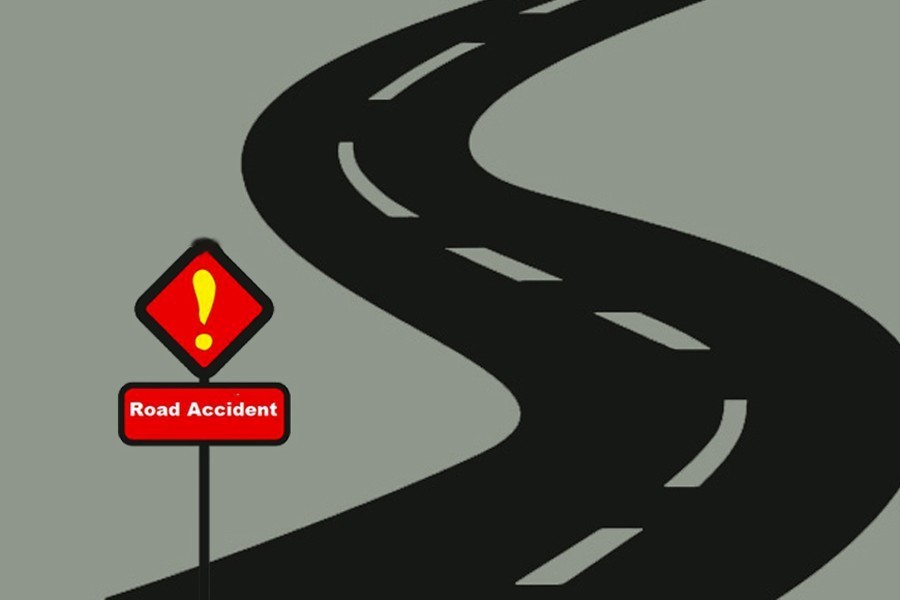
Published :
Updated :

The country's dismal record of roads and highways is turning worse with every passing day. It appears that the authorities concerned have resigned to the rising daily vehicular crashes and the consequent casualties. There is no respite from tragedies, many of which are simply avoidable. Is not it intriguing that the monitoring agencies come up with the information in most cases that the vehicle/s ---vessels as well when accidents happen on waterways --- involved in the accident and its/their drivers had no route permission and licence respectively? Then it is claimed a conductor or helper was behind the steering wheel at the time of accident.
Now the question is, how the unauthorised vehicles can move on the country's roads and highways? Why are the vehicles not monitored and taken off the road before those cause or become the prime cause of an accident? In this digital age, it is a pity that devices such as speed checker, an inexpensive circuit, and speed gun for monitoring rash driving and enough patrol police on highways and busy roads are not used and deployed. Then of course, the routine check can easily detect the unapproved vehicles and drivers without licences. It is precisely the highway police's duty but evidently this task is left neglected.
In this connection, let it be clear that slow-speed vehicles such as mishuk (three-wheeler auto-rickshaw), tom tom, karimon and nasimon (locally fashioned contraption-vehicles), proved to have been a major cause for accidents, could not be barred from busy roads and highways even though their movement is illegal. Why this cannot be done is a mystery. Particularly, everyone knows about the most dangerous segments of roads or highways and if an adequate number of patrol police is deployed there, rash driving can be controlled.
Lately the Chattogram-Cox's Bazar highway has come under closer scrutiny for the higher incidence of road crashes. The death of five brothers of a family and the other one's fight for life in a hospital have brought a peculiar kind of problem, exceptional to a large segment of that highway. It is the salt-carrying trucks on that highway that have made it fraught with danger. Salt carried without plastic sheet cover releases some water that seeps out all along the highway, causing the road to be extremely slippery. Brake does not work when drivers apply it to bring a vehicle to a halt. The salt water also damages asphalt cover on roads and highways. There is a simple solution to this but those carrying salt could not care less and the law enforcers complain that they cannot take action because there is no law strict enough to apply against the vehicles or drivers carrying salt.
Next comes the issue of drivers' fitness. It is a positive development that the Bangladesh Road Transport Authority (BRTA) has made dope test mandatory for issuance and renewal of driving licences. But the problem that deserves equal, if not more, attention is the working hours for drivers. They are, with rare exception, forced to drive well beyond human capacity. If they do not get enough rest, even the best of drivers are sure to get tired and likely to doze on the steering wheel. This leads to fatal accidents. So regularising drivers' service, precisely mentioning reasonable working hours is a must. That drivers at times hand over the steering wheel to conductors and helpers is unsurprising because at that point they exceed their toleration limit.
Without attending these issues, discipline of roads and highways cannot be maintained. Then, these are not impossible propositions. If there is will, there is a way. The authorities have only to opt for appropriate measures and the road tragedies can be minimised.
nilratanhalder2000@yahoo.com


 For all latest news, follow The Financial Express Google News channel.
For all latest news, follow The Financial Express Google News channel.